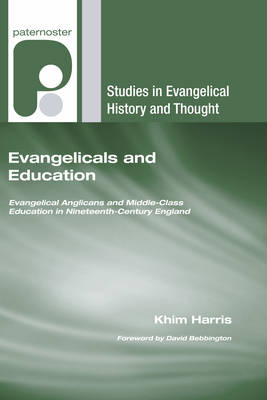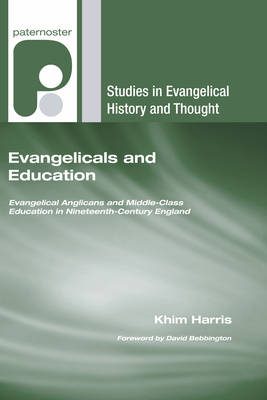
En raison d'une grêve chez bpost, votre commande pourrait être retardée. Vous avez besoin d’un livre rapidement ? Nos magasins vous accueillent à bras ouverts !
- Retrait gratuit dans votre magasin Club
- 7.000.000 titres dans notre catalogue
- Payer en toute sécurité
- Toujours un magasin près de chez vous
En raison de la grêve chez bpost, votre commande pourrait être retardée. Vous avez besoin d’un livre rapidement ? Nos magasins vous accueillent à bras ouverts !
- Retrait gratuit dans votre magasin Club
- 7.000.0000 titres dans notre catalogue
- Payer en toute sécurité
- Toujours un magasin près de chez vous
Description
This is the first history of English public schools founded by Evangelicals in the nineteenth century. Five existing public schools can be traced back to this period: Cheltenham College, Dean Close School, Monkton Combe School, Trent College, and St Lawrence's College. Some of these schools were set up in direct competition with new Anglo-Catholic schools, while others drew their inspiration from and, to a greater or lesser extent, were modelled on their rivals. Harris documents, for the first time, the rise of Evangelical societies such as the influential Church Association and the little-known Clerical and Lay Associations. An extensive bibliography and useful biographical survey of influential Evangelicals of the period completes this groundbreaking study. ""Khim Harris's perceptive study establishes how Victorian Anglican Evangelicals were committed to providing middle-class education. Some schools were founded by visionary individuals, others were established by bodies like the previously unresearched Clerical and Lay Associations."" --Alan Munden, The Queen's Foundation, Birmingham, UK ""Evangelicals and Education is a very important book. Khim Harris has provided us with a thorough-going and scholarly account of some very significant individual and corporate evangelical initiatives in English education in the nineteenth century. His work will help the reader to understand better the educational perspectives of many twentieth-century and contemporary evangelicals, particularly those influenced by evangelical Anglicanism."" --John Shortt, Editor, The Journal of Education and Christian Belief ""Dr Harris's important monograph fills a gap in the history of Victorian education and evangelicalism, providing a significant insight into the complexities of Anglican evangelical involvement in nineteenth-century middle-class schooling."" --W. B. Stephens, formerly Reader in the History of Education, University of Leeds Khim Harris was a lecturer in education at the University of Western Australia before becoming Manager of Education at Perth Zoo. He has a special interest in the history of the nineteenth century. He is an active member of St. Matthew's Anglican Church in Shenton Park and is married with four children.
Spécifications
Parties prenantes
- Auteur(s) :
- Editeur:
Contenu
- Nombre de pages :
- 450
- Langue:
- Anglais
- Collection :
Caractéristiques
- EAN:
- 9781597527309
- Date de parution :
- 01-09-07
- Format:
- Livre broché
- Format numérique:
- Trade paperback (VS)
- Dimensions :
- 156 mm x 227 mm
- Poids :
- 526 g

Les avis
Nous publions uniquement les avis qui respectent les conditions requises. Consultez nos conditions pour les avis.






